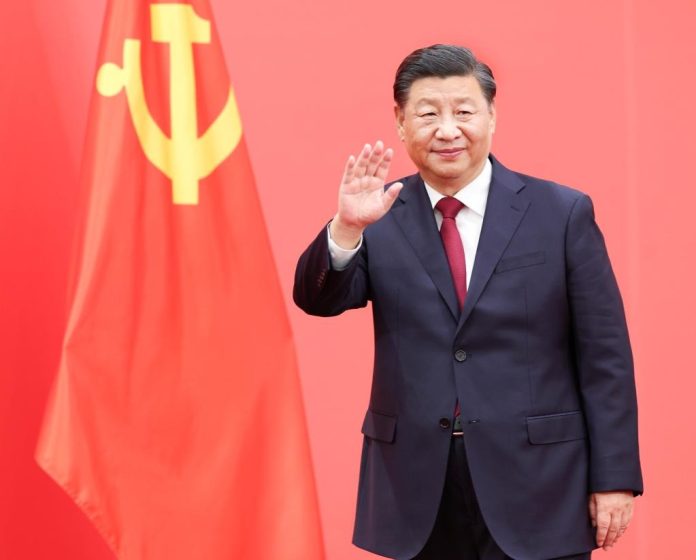Somali Magazine October 16, 2023- African presidents and other high-profile leaders are in Beijing for the 10th anniversary of its Belt and Road Initiative forum which kicks off tomorrow and will be officially opened by Chinese President Xi Jinping.
Prof XN Iraki, Associate Professor from the University of Nairobi terms the BRI forum as a key strategic summit aimed at assuring African leaders and those from developing economies that China is a good trading partner.
“China is slowly enshrining its soft power to the African continent because they don’t interfere with the governance systems in Africa as opposed to the West who will point out the wrongdoings of rogue dictatorship in the continent,” says Prof Iraki.
Already by mid-Monday morning –East African Time, more than a dozen leaders from Africa, Asia, and the Mideast were flying into Beijing, following the arrivals of Chilean President Gabriel Boric, Ethiopian Prime Minister Abiy Ahmed, Sri Lankan President Ranil Wickremesinghe, the Republic of Congo President Denis Sassou Nguesso, Papua New Guinean Prime Minister James Marape, and Cambodian Prime Minister Hun Manet.
Kenyan President William Ruto and Hungarian Prime Minister Viktor Orbán arrived on Sunday in Beijing.
Under the Belt and Road initiative, a signature policy of Xi, Chinese companies have built ports, roads, railways, power plants and other infrastructure around the world in a bid to boost trade and economic growth.
But the massive Chinese development loans that funded the projects have also burdened some African countries with heavy debts.
Prof Iraki opines, “I think the debt repayment plan will be on top of the agenda for the majority of these African states who are struggling to repay Chinese debts. There has also been a lot of pressure from the West on the Chinese debt trap that they use to gain access to lucrative natural resources in the African continent. Already IMF, AFDB and World Bank have cautioned African leaders not to attach the loans to natural resources.”
A flurry of diplomacy is expected on the sidelines of the third Belt and Road Forum, whose main events are on Wednesday. Orbán met Sunday with Chinese leader Xi Jinping and Premier Li Qiang, Hungary’s state news agency MTI said. The forums also were held in 2017 and 2019.
Russian President Vladimir Putin is expected to attend the forum, as well as the representatives of the Taliban government in Afghanistan.
The China-proposed Belt and Road Initiative (BRI) is a major global initiative that is “responsive to the times,”
Eritrean Minister of Information Yemane Gebremeskel in an interview with a Chinese media outlet said, to new heights.
“The Belt and Road Initiative will only add to existing relationships,” the information minister said. “This is the relationship that has been flourishing for the last three decades, and it will continue.”
With the growth of its relations with China, the Red Sea nation signed a Memorandum of Understanding with China in November 2021 to join the initiative.
Gebremeskel said cooperation under the initiative will further lift bilateral relations
Proposed in 2013, the initiative aims to build trade and infrastructure networks on and beyond the ancient Silk Road routes. It comprises the Silk Road Economic Belt and the 21st Century Maritime Silk Road.
Gebremeskel highlighted the importance of cooperation in infrastructure development under the initiative.
“Investments in infrastructure (and) support in infrastructure is good because it creates an enabling environment,” he said.
“Africa does not need a lot of handouts. It needs support at a critical juncture, for a limited period of time. Africa has its own potential, its own contributions to global trade, to global investment, (and) to global growth,” Gebremeskel said.
“We have to recognize that there is potential everywhere, and we can devise cooperation arrangements that can catalyze domestic growth; can tap the domestic potential, so there can be synergy (and) complementarity,” he said.

